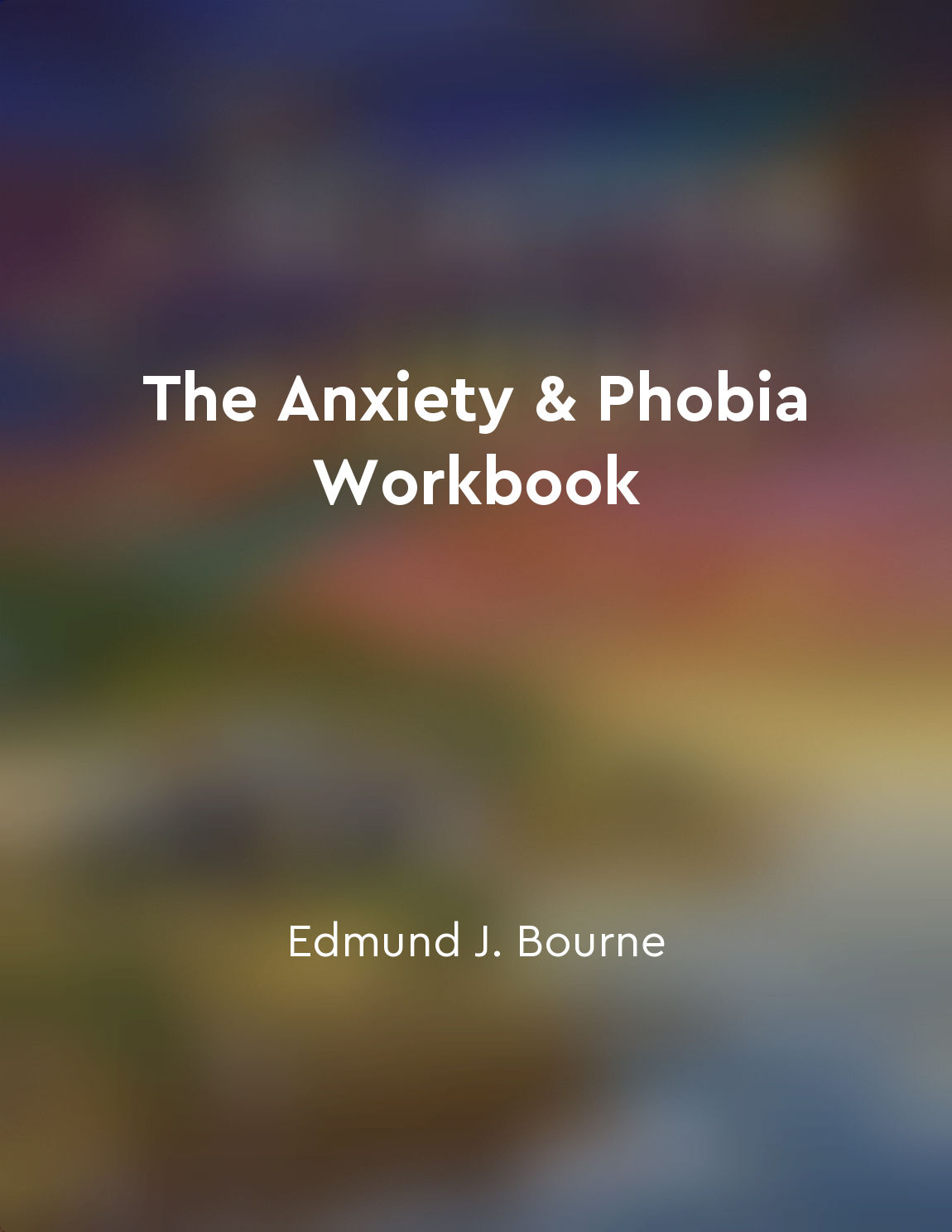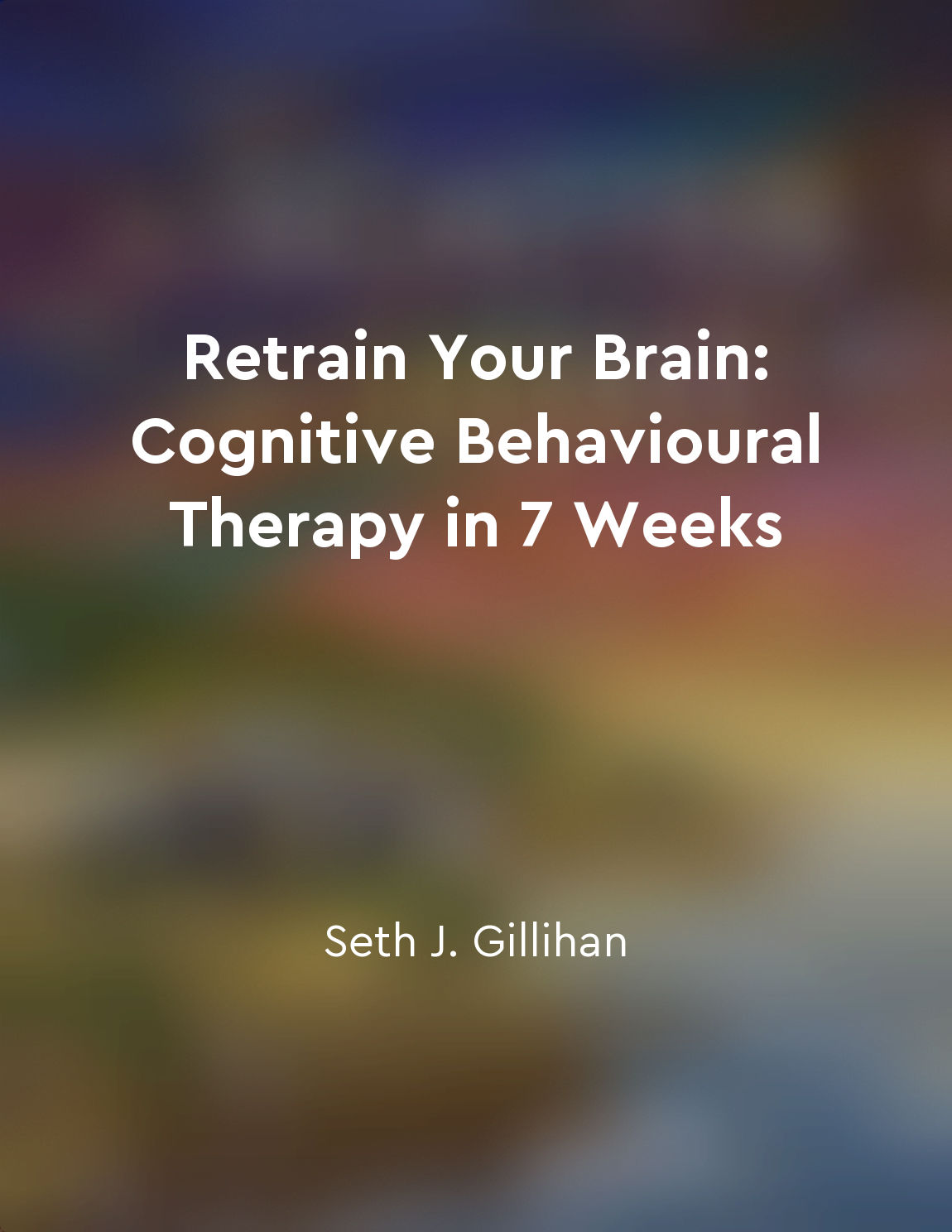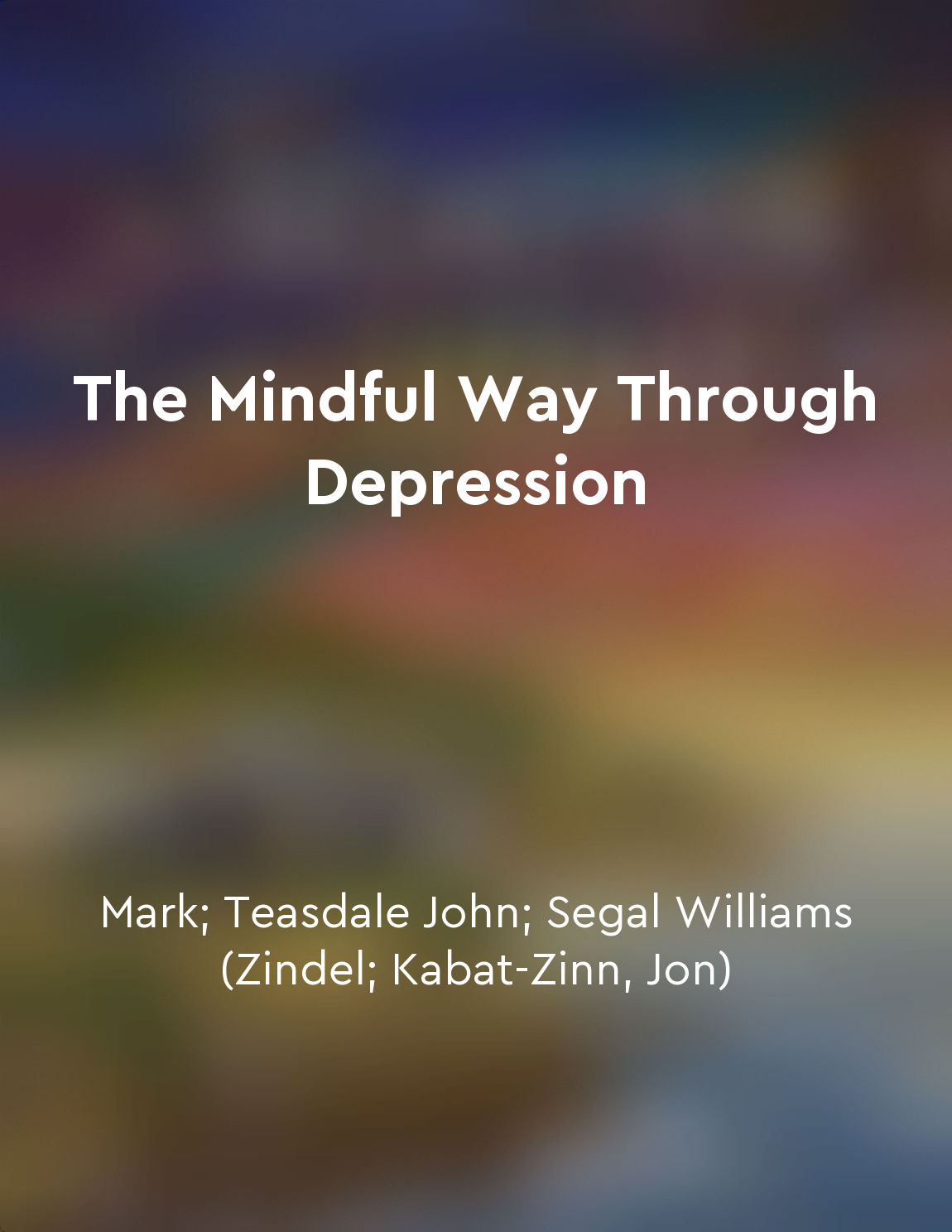Explore cognitive behavioral therapy techniques from "summary" of Eat to Beat Depression and Anxiety by Drew Ramsey
Cognitive behavioral therapy techniques are an essential tool in managing depression and anxiety. By exploring these techniques, you can gain valuable insights into how your thoughts and behaviors affect your mood. This type of therapy helps you identify negative thought patterns and replace them with more positive and constructive ones. Through cognitive restructuring, you can challenge and change distorted beliefs that contribute to feelings of depression and anxiety. One technique often used in cognitive behavioral therapy is thought monitoring. This involves keeping track of your thoughts throughout the day, especially when you notice a shift in your mood. By becoming more aware of your thought patterns, you can start to recognize triggers that lead to negative emotions. This awareness allows you to intervene and challenge unhelpful thoughts before they spiral out of control. Another key aspect of cognitive behavioral therapy is behavioral activation. This technique focuses on engaging in activities that bring you joy and fulfillment, even when you don't feel like it. By scheduling enjoyable activities into your daily routine, you can counteract feelings of lethargy and withdrawal that often accompany depression and anxiety. Over time, these activities can help improve your mood and sense of well-being. In addition to thought monitoring and behavioral activation, cognitive behavioral therapy also includes techniques such as relaxation training and stress management. These strategies can help you cope with the physical symptoms of anxiety and depression, such as muscle tension and racing thoughts. By learning how to relax your body and mind, you can reduce the intensity of your symptoms and feel more in control of your emotions.- Exploring cognitive behavioral therapy techniques can provide you with practical tools for managing depression and anxiety. By working with a therapist or practicing these techniques on your own, you can gain a deeper understanding of the connection between your thoughts, behaviors, and emotions. Through consistent practice and dedication, you can learn to challenge negative patterns and cultivate a more positive outlook on life.
Similar Posts

Phobias are intense fears that can disrupt daily life
Phobias are intense fears that can disrupt daily life. They are more than just normal fears; they are irrational and exaggerate...

Gratitude is a powerful tool for increasing happiness
Gratitude is crucial. It’s a simple concept, perhaps even verging on cliché, but that doesn’t make it any less true. Research h...
The mind can be trained to focus and concentrate
The mind, as it turns out, is surprisingly malleable. It can be trained, through meditation, to focus and concentrate. This abi...
Engage in activities that promote mental wellbeing
To truly take care of our mental health, we must actively participate in activities that nurture our minds and promote overall ...
Omega3 fatty acids are beneficial for brain energy production
Omega-3 fatty acids play a crucial role in brain health and function. These fatty acids are not produced by the body, so they m...
Positive thinking can support brain healing
When we consider the idea that thoughts can actually influence the healing process in the brain, it may seem like a far-fetched...

Learn how to communicate feelings effectively
Learning how to communicate your feelings effectively is an important skill to have. It means being able to express your emotio...

Learn to identify automatic thoughts
Automatic thoughts are the quick, fleeting, and often unconscious cognitions that pop into our minds throughout the day. These ...
Selfdoubt is a natural part of being human
Self-doubt is a natural part of being human. It's a common experience that almost everyone goes through at some point in their ...

Cultivating selfcompassion is essential for healing
The process of cultivating self-compassion is a crucial aspect of the healing journey. When we are able to approach ourselves w...


